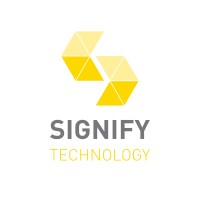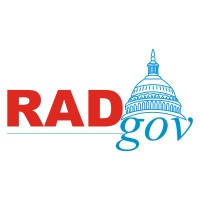

Signify Technology
ML Engineer
⭐ - Featured Role | Apply direct with Data Freelance Hub
This role is for a senior Python ML Engineer on a 3-month contract, remote within U.S. time zones. Requires 7+ years in ML application development, SQL migration to Redshift, and expertise in testing and containerization tools.
🌎 - Country
United States
💱 - Currency
$ USD
-
💰 - Day rate
Unknown
-
🗓️ - Date
November 21, 2025
🕒 - Duration
3 to 6 months
-
🏝️ - Location
Remote
-
📄 - Contract
Unknown
-
🔒 - Security
Unknown
-
📍 - Location detailed
Chicago, IL
-
🧠 - Skills detailed
#Python #Deployment #"ETL (Extract #Transform #Load)" #Snowflake #Pytest #Redshift #Airflow #Data Warehouse #Docker #Data Quality #Documentation #Data Access #Cloud #Migration #Model Validation #Amazon Redshift #BigQuery #ML (Machine Learning) #Data Ingestion #SQL (Structured Query Language) #Automation #Databases #Kubernetes #Logging #Automated Testing #dbt (data build tool) #Data Pipeline
Role description
URGENT
ML contractor
Term: 3 months
Openings: 1
Location: Remote (U.S. time zones; must overlap ?4 hours with U.S. Central Time)
Start: ASAP
Overview
We are seeking a senior Python ML engineer to lead the migration of multiple analytics and machine learning applications from a legacy SQL environment to Amazon Redshift. In addition, the codebases need to be standardized on a modern Python architecture that supports best practices for deployment, testing, and maintainability. This role combines hands-on work with mentoring, ensuring sustainable practices across the team.
Key Responsibilities
• Review existing Python applications to map dependencies, data access patterns, configuration, and deployment processes.
• Transition data pipelines to pull from Redshift while eliminating legacy SQL dependencies.
• Standardize code organization, packaging, configuration, logging, and containerization according to a modern reference framework.
• Develop unit and integration tests for data ingestion, transformations, and model outputs, integrating them into CI/CD pipelines.
• Document code, add clear type hints, improve readability, and produce operational runbooks for all applications.
• Update deployment pipelines using containerization and orchestration tools to ensure repeatable, automated releases.
• Provide guidance and training to engineers on modern development standards, testing practices, and Redshift integration.
Expected Deliverables
• Week 1: Conduct application inventory, define architecture targets, and begin updating the first application (data layer, tests, documentation).
• Week 2: Complete first app migration, validate in a staging environment, and begin work on a second application.
• Week 3+: Continue migrating ~2 applications per week, including code standardization, testing, documentation, and deployment automation, until all applications are fully transitioned.
Required Skills And Experience
• 7+ years of professional experience developing production ML or analytics applications in Python.
• Strong knowledge of Python project structures, dependency management, and packaging tools (pip, poetry, conda).
• Experience migrating applications from legacy SQL databases to cloud data warehouses (Redshift, Snowflake, BigQuery), ensuring data consistency.
• Proficiency in SQL and experience optimizing queries for cloud warehouses.
• Demonstrated ability to write robust tests (pytest/unittest) and integrate them with CI/CD pipelines.
• Familiarity with containerization, orchestration, and workflow tools such as Docker, Kubernetes, Airflow, or Step Functions.
• Strong documentation skills and ability to coach other engineers on sustainable development practices.
Preferred Skills
• Experience with dbt-modeled data warehouses and collaboration with analytics engineers.
• Knowledge of MLOps tools, model validation frameworks, and feature stores.
• Ability to implement automated testing frameworks and data quality checks for ML pipelines.
Success Metrics
• All Python ML and analytics applications migrated to Redshift with verified parity.
• Applications updated to a modern architecture, complete with testing, documentation, and deployment automation.
• Team empowered with guidance, processes, and runbooks to maintain the applications independently after the engagement.
URGENT
ML contractor
Term: 3 months
Openings: 1
Location: Remote (U.S. time zones; must overlap ?4 hours with U.S. Central Time)
Start: ASAP
Overview
We are seeking a senior Python ML engineer to lead the migration of multiple analytics and machine learning applications from a legacy SQL environment to Amazon Redshift. In addition, the codebases need to be standardized on a modern Python architecture that supports best practices for deployment, testing, and maintainability. This role combines hands-on work with mentoring, ensuring sustainable practices across the team.
Key Responsibilities
• Review existing Python applications to map dependencies, data access patterns, configuration, and deployment processes.
• Transition data pipelines to pull from Redshift while eliminating legacy SQL dependencies.
• Standardize code organization, packaging, configuration, logging, and containerization according to a modern reference framework.
• Develop unit and integration tests for data ingestion, transformations, and model outputs, integrating them into CI/CD pipelines.
• Document code, add clear type hints, improve readability, and produce operational runbooks for all applications.
• Update deployment pipelines using containerization and orchestration tools to ensure repeatable, automated releases.
• Provide guidance and training to engineers on modern development standards, testing practices, and Redshift integration.
Expected Deliverables
• Week 1: Conduct application inventory, define architecture targets, and begin updating the first application (data layer, tests, documentation).
• Week 2: Complete first app migration, validate in a staging environment, and begin work on a second application.
• Week 3+: Continue migrating ~2 applications per week, including code standardization, testing, documentation, and deployment automation, until all applications are fully transitioned.
Required Skills And Experience
• 7+ years of professional experience developing production ML or analytics applications in Python.
• Strong knowledge of Python project structures, dependency management, and packaging tools (pip, poetry, conda).
• Experience migrating applications from legacy SQL databases to cloud data warehouses (Redshift, Snowflake, BigQuery), ensuring data consistency.
• Proficiency in SQL and experience optimizing queries for cloud warehouses.
• Demonstrated ability to write robust tests (pytest/unittest) and integrate them with CI/CD pipelines.
• Familiarity with containerization, orchestration, and workflow tools such as Docker, Kubernetes, Airflow, or Step Functions.
• Strong documentation skills and ability to coach other engineers on sustainable development practices.
Preferred Skills
• Experience with dbt-modeled data warehouses and collaboration with analytics engineers.
• Knowledge of MLOps tools, model validation frameworks, and feature stores.
• Ability to implement automated testing frameworks and data quality checks for ML pipelines.
Success Metrics
• All Python ML and analytics applications migrated to Redshift with verified parity.
• Applications updated to a modern architecture, complete with testing, documentation, and deployment automation.
• Team empowered with guidance, processes, and runbooks to maintain the applications independently after the engagement.






